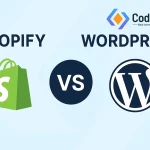How to Do SEO for a Real Estate Website?
In today’s competitive real estate market, it’s essential for agents and agencies to have a strong online presence. According to the National Association of Realtors, 97% of homebuyers use the internet to search for properties.
That’s why having a well-optimized real estate website can significantly improve your chances of attracting potential clients. But what exactly is real estate SEO, and how can you leverage it to grow your online presence?
This guide will take you through the essential strategies for doing SEO for a real estate website, backed by stats, figures, and practical tips.
What is Real Estate SEO?
Real estate SEO (Search Engine Optimization) refers to optimizing a real estate website to improve its rankings in search engine results, such as Google. With the right SEO strategies, real estate agents can improve visibility, attract organic traffic, and generate more leads.
Why SEO is Crucial for Real Estate Websites
SEO is no longer optional for real estate websites. Here’s why it’s critical:
1- The Online Shift:
93% of homebuyers start their search online, according to the National Association of Realtors (NAR). This is a clear indicator that if you don’t optimize your website, you’ll miss out on the majority of potential leads.
2- High Competition:
There are over 2 million real estate agents in the U.S. alone. SEO helps you stand out in a highly competitive market by getting your website in front of the right audience.
3- Cost-Effectiveness:
SEO drives 15 times more clicks than paid search ads, according to a study by Search Engine Journal. Unlike paid advertising, SEO can continue to bring in leads long after your initial investment.
How to Do SEO for a Real Estate Website to Rank Higher in SERP?
Now that we understand why SEO is important, let’s dive into the specific strategies that will help optimize your real estate website.
1- Target the Right Keywords
Keywords are the foundation of SEO. For real estate websites, using the correct, location-based, and niche keywords will help you appear in relevant searches.
-
91% of online experiences begin with a search engine, and the top 3 results on Google get 75% of clicks, according to Search Engine Land. This makes keyword targeting crucial for improving your rankings.
Tools like Google Keyword Planner, SEMrush, and Ahrefs can help you identify the most relevant keywords for your website.
2- Optimize for Local SEO
Local SEO is vital for real estate businesses since most searches are location-based. In fact, 46% of all Google searches are seeking local information (source: Google). Here’s how to optimize for local SEO:
a) Google My Business (GMB)
Real estate agents who set up and optimize their GMB profiles are 70% more likely to get visits to their website and 35% more likely to receive inquiries (according to Moz).
b) Local Keywords
Ensure that your website includes the names of cities, neighborhoods, and regions you serve. For example, “real estate agent in San Francisco” or “homes for sale in Miami.”
c) Local Reviews
92% of consumers read online reviews before making a purchase, and 68% of consumers will choose a business based on positive reviews (source: BrightLocal). Encourage satisfied clients to leave reviews to boost your credibility and improve local rankings.
3- Mobile Optimization and Website Speed
With more users browsing for homes via mobile, optimizing for mobile is a must.
-
Mobile-first indexing: As of 2020, Google uses mobile-first indexing, meaning it ranks websites based on their mobile versions. If your website isn’t optimized for mobile, your rankings will suffer.
-
Speed Matters: According to Google, 53% of mobile users will abandon a page that takes longer than 3 seconds to load. To improve page speed, compress images, minimize code, and use a CDN.
4- Create High Quality Content
Content is king, especially when it comes to real estate SEO. In fact, 80% of people prefer to learn about a company through content rather than ads (source: Custom Media). By creating valuable, informative, and keyword-optimized content, you can improve your rankings and attract more visitors.
-
Property Listings: Ensure that each listing is detailed and includes high-quality images, descriptions, and keywords like “homes for sale in [city].”
-
Blog Posts: Real estate blog posts can drive organic traffic. For instance, a blog post titled “How to Buy Your First Home in [City]” could target first-time homebuyers.
-
Neighborhood Guides: Detailed guides about local neighborhoods not only provide value but also help you rank for location-specific searches. For example, “Best Neighborhoods in [City] for Young Families.”
5- Earn Backlinks
Backlinks remain one of the most important ranking factors for SEO. Backlinks from authoritative sites help improve your website’s domain authority, which, in turn, boosts your search engine rankings.
-
Websites with 100 or more referring domains see a 2x higher chance of ranking on the first page of Google (source: Ahrefs).
-
You can earn backlinks by:
-
Guest blogging: Writing guest posts for real estate blogs or local news sites with backlinks to your site.
-
Collaborations: Partnering with local businesses or influencers who can link to your content.
-
Content sharing: Promoting your valuable content on social media platforms to increase the likelihood of others linking to it.
-
6- Use SEO Tools to Track Performance
Using SEO tools helps you monitor your progress and make data-driven decisions. Some essential tools include:
-
Google Analytics: Helps track visitor behavior, which pages are performing well, and where traffic is coming from.
-
SEMrush: A powerful tool for keyword tracking, competitor analysis, and backlink monitoring.
-
Yoast SEO: If you’re using WordPress, Yoast is an essential plugin to help optimize your posts and pages.
How Much Should You Spend on Real Estate SEO?
SEO is a long-term investment, and the cost can vary significantly depending on the level of service and expertise you require.
-
Monthly SEO services: You might pay anywhere from $500 to $2,000 per month, depending on the scope and competition in your market. According to a study by Moz, businesses that invest in SEO see an average ROI of 122% over time.
-
Local SEO: For a local SEO package, you may pay $500 to $1500 per month, depending on how competitive the area is.
-
DIY SEO: If you’re doing SEO yourself, the cost may only involve tools like SEMrush or Ahrefs, which typically cost between $100 to $500 per month.
Conclusion
SEO for real estate websites is no longer optional if you want to remain competitive. With 97% of homebuyers turning to the internet and 93% of homebuyers using a search engine during their journey, optimizing your website is critical. By targeting the right keywords, optimizing for local SEO, producing high-quality content, and earning authoritative backlinks, you can increase your visibility and generate more leads.
SEO is a long-term game, but with the right strategies in place, it can lead to substantial rewards in terms of web traffic, lead generation, and business growth. Ready to get started? Implement these strategies and watch your real estate website rise through the search rankings!






